Philosophy
We believe that God calls us to be creatures who communicate through language, based on His example of communicating with us through His revealed Word, the Bible. In the Bible, God employs many forms of literature, including stories and poetry, to instruct us in His character and expectations of us. Therefore we believe it is important for students to learn to communicate clearly and effectively through language, as well as to develop a love of God’s Word and an appreciation for the gifts of the spoken and written word. Students should master grammar, spelling, and other writing conventions, as well as learn how to comprehend spoken and written words, to think critically about them, and to respond clearly and thoughtfully through writing and discussion.
Course Objective
The Kindergarten Reading Program is a comprehensive program that introduces children to the concept of print through Phonetic Awareness, Letter and Sound Recognition, Comprehension Skills and Vocabulary. Students will develop reading fluency and writing through this program. Their listening, speaking, and observation skills will be enhanced.(DC, NLL) This reading program also covers interrelated topics on Science, Social Studies, Math, Music and Art by introducing factual and fiction literature. (SCW, ET, ) We evaluate and compare and contrast stories to a Biblical World View (RUC, ET) and we look at literature from around the world. (SCW, ET, NLL).
Materials
- Houghton Mifflin Kindergarten Teacher’s Edition Reading Manual
- 10 Theme Bags containing Big Books/Read Aloud Books/Little Big Books/Audio CD/Phonics Library Book/Theme Posters
- Reading Practice Student book/Alphafriends Card Kit/Letter Word and Picture Cards/Phonics Center Direction Chart
Time Allotment
90 – 120 minutes per day, 5 days per week
Course Content
- Phonetic Awareness (Wordless books/high-Frequency words/Words with short vowel sounds/Initial Consonants)
- Comprehension Skills
- Concepts of Print
- The Alphabet
- Vocabulary
- Writing
- Listening, Speaking, and Viewing Skills
- Daily Observation
- Written assessment
Evaluation
Oral assessment


